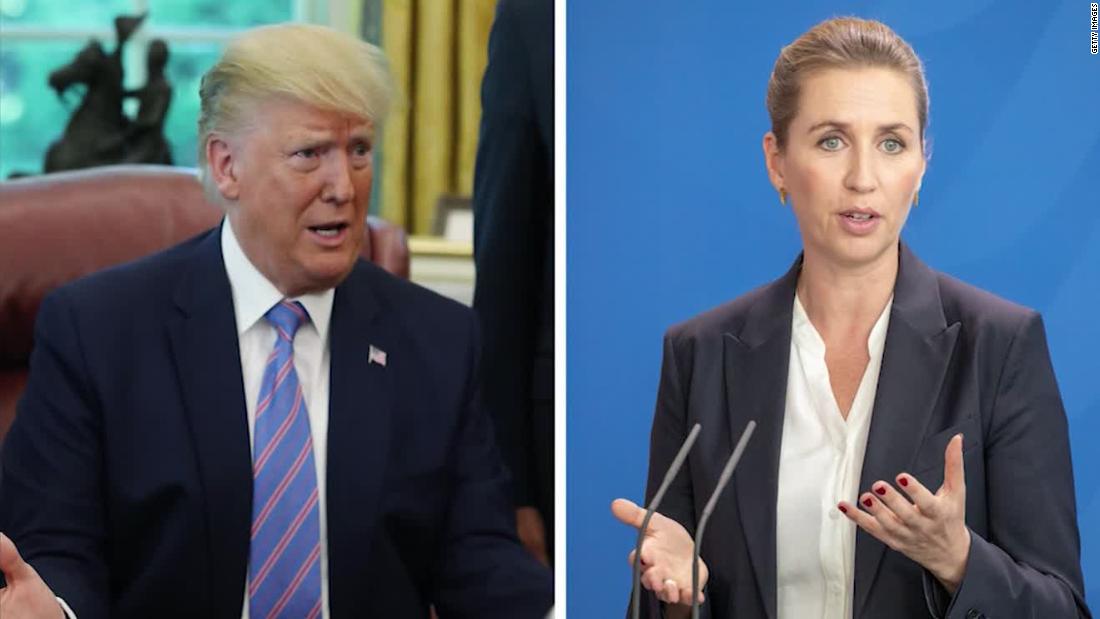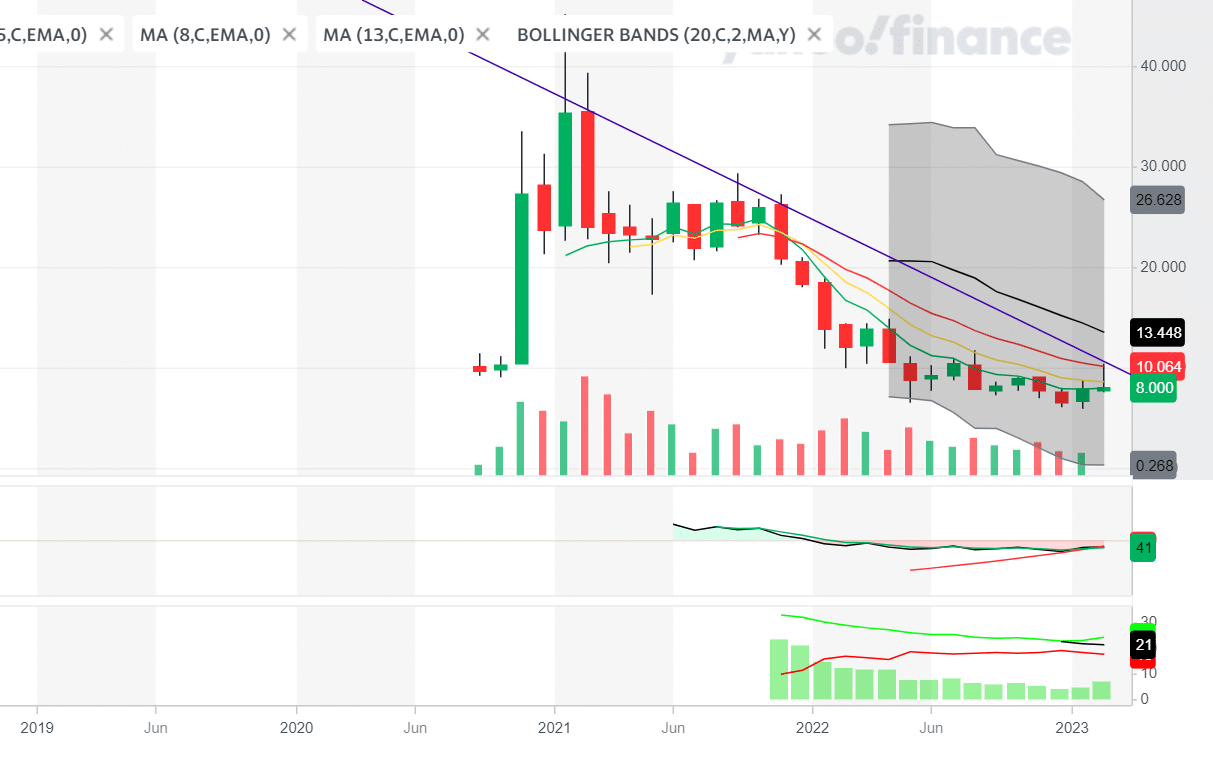The Trump Factor: How Threats Altered Greenland's Relationship With Denmark

Table of Contents
Historical Context: Greenland's Relationship with Denmark
Greenland's relationship with Denmark is a long and multifaceted one, marked by a colonial past that continues to cast a long shadow. For centuries, Denmark held Greenland under colonial rule, a period characterized by significant limitations on Greenlandic self-governance and cultural suppression. This colonial legacy profoundly impacts the current relationship.
- Colonial past and its lasting effects: The legacy of colonialism manifests in various aspects of Greenlandic society, from economic dependence to lingering social inequalities. The extraction of resources and the imposition of Danish cultural norms left lasting imprints.
- The gradual granting of home rule and its limitations: While Denmark gradually granted Greenland increasing autonomy, this process has been incremental and often fraught with political tensions. Home rule, established in stages starting in 1979, granted Greenland significant control over domestic affairs but maintained Danish responsibility for foreign policy and defense.
- Current status of Greenland's autonomy within the Kingdom of Denmark: Greenland currently holds a self-governing status within the Kingdom of Denmark, a complex constitutional arrangement that balances self-determination with shared responsibilities.
- Key areas of shared responsibility (e.g., defense, foreign affairs): Denmark continues to manage Greenland's defense and foreign affairs, a point of ongoing debate and negotiation. This shared responsibility reflects the historical power dynamic and the ongoing challenges of full independence.
- Ongoing discussions regarding full independence and its implications: The question of full independence remains a central political issue in Greenland, with ongoing discussions about its feasibility and implications for economic stability and international relations.
The Trump Administration's Proposal to Buy Greenland: A Turning Point
Trump's surprising proposal to purchase Greenland in August 2019 fundamentally altered the political dynamics. His stated motivations, including Greenland's strategic location and its potential mineral wealth, were met with widespread incredulity and firm rejection.
- Trump's stated reasons for wanting to buy Greenland (strategic location, resources): The proposal was widely interpreted as an attempt to increase US strategic influence in the Arctic, driven by concerns about Russia and China's growing presence in the region. Access to resources was also undoubtedly a factor.
- Greenland's swift and firm rejection of the offer: Greenland's immediate and unequivocal rejection underscored its commitment to self-determination and its desire to maintain its relationship with Denmark on its own terms.
- Denmark's response and its impact on bilateral relations: Denmark's response, which labeled the proposal "absurd," strained relations with the US, albeit temporarily. The incident highlighted the sensitivity surrounding Greenland's sovereignty and Denmark’s role as a protector.
- International reaction and media coverage: The proposal triggered a global media frenzy, generating widespread debate about the implications of such a bold move and the future of the Arctic.
- Analysis of Trump's proposal: was it serious? What were its underlying motivations?: While the proposal’s seriousness is debatable, its underlying motivations undoubtedly involved strategic positioning and resource access within the increasingly contested Arctic landscape.
Shifting Geopolitical Dynamics in the Arctic: Increased US Influence
Trump's proposal, while ultimately unsuccessful, served as a stark reminder of the escalating geopolitical competition in the Arctic. The region's melting ice cap is opening up new opportunities for resource extraction and navigation, attracting the attention of major global powers.
- Growing interest from major powers (US, Russia, China) in the Arctic: The Arctic is witnessing a surge in interest from various nations, each seeking to secure its strategic and economic interests. This competition is reshaping the regional geopolitical landscape.
- Competition for resources (oil, gas, minerals, fisheries): The Arctic's vast reserves of oil, gas, minerals, and fisheries are becoming increasingly accessible, fueling intense competition between nations.
- Strategic importance of the Arctic for shipping routes and military positioning: The region's strategic location, with its potential for new shipping routes and military bases, makes it highly significant for global power projection.
- The role of climate change in opening up new opportunities and challenges: Climate change, while posing environmental risks, is simultaneously opening new opportunities for resource extraction and navigation in the Arctic, exacerbating geopolitical tensions.
- How Trump's actions inadvertently accelerated these geopolitical shifts: Trump's actions, however unconventional, brought renewed attention to the Arctic's strategic importance, inadvertently accelerating the geopolitical shifts already underway.
Greenland's Growing Autonomy and Assertiveness
The Trump proposal, paradoxically, may have strengthened Greenland's resolve to pursue greater autonomy and self-determination. The experience highlighted the importance of charting its own course in the face of external pressures.
- Increased Greenlandic political mobilization in response to external pressure: The incident spurred a renewed focus on Greenlandic self-determination and increased political engagement at both domestic and international levels.
- Strengthened national identity and a desire for self-reliance: The rejection of Trump's offer fostered a stronger sense of Greenlandic national identity and a desire to reduce reliance on external powers.
- Exploration of new international partnerships beyond Denmark: Greenland is actively exploring new partnerships and collaborations beyond its traditional relationship with Denmark, seeking a more diverse range of international relationships.
- Greenland's growing role in international Arctic forums: Greenland's participation in international Arctic forums has become increasingly prominent, reflecting its growing voice on the world stage.
- Potential implications for its relationship with the EU: Greenland’s growing autonomy also impacts its relationship with the EU, with potential implications for trade and cooperation.
The Long-Term Impact on Denmark-Greenland Relations
Trump's proposal, while ultimately rejected, left an undeniable mark on the Denmark-Greenland relationship. It exposed underlying tensions and prompted a reassessment of the power balance within the Kingdom.
- Strain on the relationship due to differing responses to the US proposal: While both countries rejected the offer, the differing responses and approaches revealed subtle underlying differences in their perspectives.
- Re-evaluation of the power balance within the Kingdom of Denmark: The incident prompted a reevaluation of the power dynamics within the Kingdom, with Greenland increasingly asserting its autonomy.
- Opportunities for enhanced dialogue and cooperation on shared interests: The experience could potentially lead to more open dialogue and cooperation between Denmark and Greenland on shared interests, particularly regarding resource management and Arctic policy.
- Challenges in navigating Greenland's increasing assertiveness while maintaining a strong partnership: Navigating Greenland's growing assertiveness while preserving a strong and mutually beneficial partnership presents significant challenges for both nations.
- The future of shared responsibility in areas like defense and foreign policy: The long-term impact on shared responsibility in areas like defense and foreign policy remains uncertain, with ongoing discussions about the future of this relationship.
Conclusion
Donald Trump's attempt to buy Greenland, while ultimately unsuccessful, served as a pivotal moment, significantly impacting the relationship between Greenland and Denmark. It exposed the underlying complexities of their partnership, highlighted the growing geopolitical competition in the Arctic, and underscored Greenland's increasing assertiveness in pursuing its own path towards greater autonomy. The “Trump Factor” undeniably accelerated pre-existing trends, leaving a lasting mark on the region's future. To fully grasp the implications, further research into Greenland's autonomy, US influence in the Arctic, and the evolving dynamics of Denmark-Greenland relations post-Trump is crucial. Understanding this complex interplay is essential for comprehending the future of this strategically important region.

Featured Posts
-
 Former Becker Jailer To Chair Nottingham Attacks Investigation
May 09, 2025
Former Becker Jailer To Chair Nottingham Attacks Investigation
May 09, 2025 -
 Palantir Stock Before May 5th Is It A Buy Wall Streets Verdict
May 09, 2025
Palantir Stock Before May 5th Is It A Buy Wall Streets Verdict
May 09, 2025 -
 Doohans Development Expert Analysis Post Colapinto Alpine Reserve Driver Announcement
May 09, 2025
Doohans Development Expert Analysis Post Colapinto Alpine Reserve Driver Announcement
May 09, 2025 -
 Elizabeth Hurley Stuns In Bikinis During Maldives Getaway
May 09, 2025
Elizabeth Hurley Stuns In Bikinis During Maldives Getaway
May 09, 2025 -
 Suncor Energy Record Production Despite Lower Sales Volumes
May 09, 2025
Suncor Energy Record Production Despite Lower Sales Volumes
May 09, 2025
